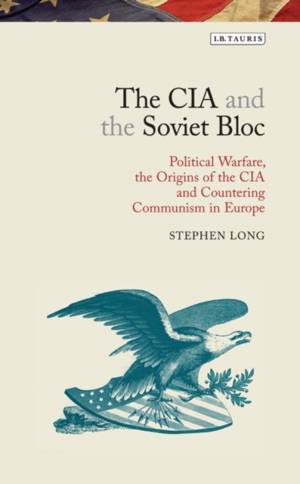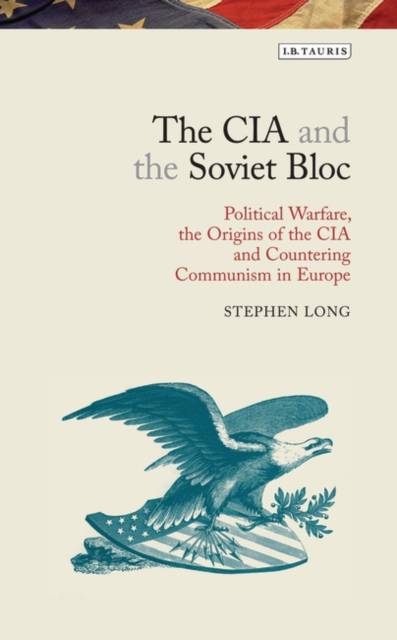
- Retrait gratuit dans votre magasin Club
- 7.000.000 titres dans notre catalogue
- Payer en toute sécurité
- Toujours un magasin près de chez vous
- Retrait gratuit dans votre magasin Club
- 7.000.0000 titres dans notre catalogue
- Payer en toute sécurité
- Toujours un magasin près de chez vous
The CIA and the Soviet Bloc
Political Warfare, the Origins of the CIA and Countering Communism in Europe
Stephen Long
76,45 €
+ 152 points
Format
Description
The Central Intelligence Agency was established by Harry S. Truman after World War II and it soon provided covert political and paramilitary support to further US foreign policy. Strengthened by President Eisenhower, by the early 1950s, under the command of Allen Dulles, the CIA was actively overthrowing governments-notably Prime Minister Mossadegh in Iran in 1953 and President Arbenz Guzman in Guatemala in 1954. The Agency was less effective in Eastern Europe, however, where the Soviet Union had established control- despite opportunities for US intereference such as the East German riots in 1953 and the Hungarian Revolution of 1956. Here, Stephen Long challenges the accepted view that the US believed in a post- World War II ordering of Europe which placed the East outside an American 'sphere of influence'. He argues instead that 'disorder prevailed over design' in the planning and organization of intelligence operations during the early stages of the Cold War, and that the period represents a missed opportunity for the US during the Cold War.
Featuring new archival material and a new approach which seeks to unpick the relationship between the CIA, the US government and the Soviet Union, The CIA and the Soviet Bloc sheds new light on espionage, the Cold War, US diplomatic history and the history of twentieth-century Europe.
Featuring new archival material and a new approach which seeks to unpick the relationship between the CIA, the US government and the Soviet Union, The CIA and the Soviet Bloc sheds new light on espionage, the Cold War, US diplomatic history and the history of twentieth-century Europe.
Spécifications
Parties prenantes
- Auteur(s) :
- Editeur:
Contenu
- Nombre de pages :
- 376
- Langue:
- Anglais
- Collection :
Caractéristiques
- EAN:
- 9781350159013
- Date de parution :
- 30-04-20
- Format:
- Livre broché
- Format numérique:
- Trade paperback (VS)
- Dimensions :
- 140 mm x 216 mm
- Poids :
- 435 g

Les avis
Nous publions uniquement les avis qui respectent les conditions requises. Consultez nos conditions pour les avis.






